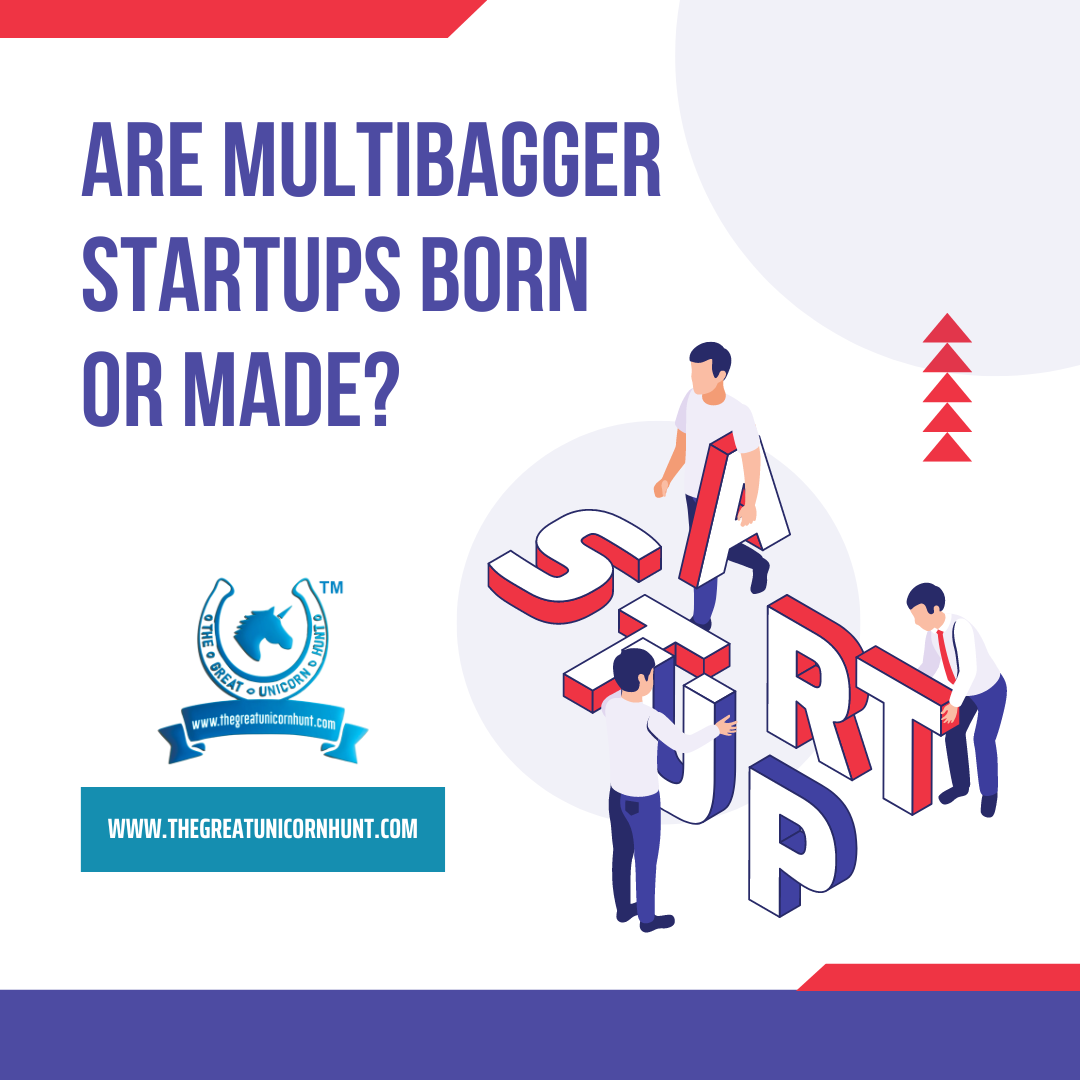
I had the privilege of speaking to an esteemed audience recently, and the conversation cantered around a topic that's both captivating and contentious: multibagger Startups – are they born with innate success or are they crafted through meticulous effort?
As an active participant in the startup ecosystem, with my roots in Mumbai and my recent years spent in Bangalore, I've been immersed in discussions, debates, and first hand experiences that have shaped my perspective. Today, I aim to shed light on this debate, drawing from my personal journey and insights gained from engaging with founders, investors, and enthusiasts.
Firstly, let's establish a common understanding. When we refer to multibagger Startups, we're essentially talking about those rare gems that achieve exceptional growth and market dominance. Think Facebook in its early days or the emergence of Zomato. These are the unicorns that capture our imagination and spark discussions.
Now, onto the crux of the matter – are these Startups inherently destined for success, or is their path to glory carved through deliberate actions and strategic decisions?
The "born" camp argues that certain Startups seem to stumble upon the magic formula right from the start. They hit the elusive sweet spot of product-market fit (PMF) effortlessly. Take Facebook, for instance. It addressed a pressing need for social connection among college students, while Zomato tapped into the desire for restaurant recommendations. These Startups seemed to possess an innate understanding of their audience's needs, driven by the founders' vision.
Speaking of founders, their role cannot be understated. The vision they bring to the table serves as a guiding light, shaping the trajectory of the startup. Initially dismissed as mere rhetoric, the founder's vision emerges as a potent force, steering the startup towards its ultimate destination.
On the flip side, we have the "made" proponents. They argue that success is not merely a stroke of luck but the result of relentless pursuit and adaptability. These Startups are constantly iterating, learning from user feedback, and refining their offerings. Additionally, access to resources and adequate runway play a crucial role in realizing the founder's vision. Many promising startups falter due to a lack of support or premature scaling.
Furthermore, strategic decision-making and business acumen come into play. Startups like Slack and Twitter didn't achieve their status by chance. They navigated challenges, seized opportunities, and made strategic pivots along the way.
Yet, amidst this debate, a common thread emerges – the significance of core insights. Whether born or made, successful startups possess a deep understanding of their problem space and offer a compelling solution. This core insight serves as the foundation upon which their success is built.
In essence, the journey of a successful startup is a blend of serendipity and strategy. It requires a well-defined problem, a meticulously crafted solution, impeccable timing, and a dash of luck. As PMF evolves with the startup's growth, so too must its adaptability and resilience.
So, are multibagger startups born or made? The answer, perhaps, lies in the synthesis of both perspectives. While some startups may possess innate advantages, others thrive through perseverance and strategic maneuvering. Ultimately, it's not about where you start but how you navigate the journey that determines success.
As we continue to witness the rise of new unicorns and disruptors, let's remember that behind every success story lies a unique blend of vision, execution, and unwavering determination.


 Login
Login Sign-up
Sign-up